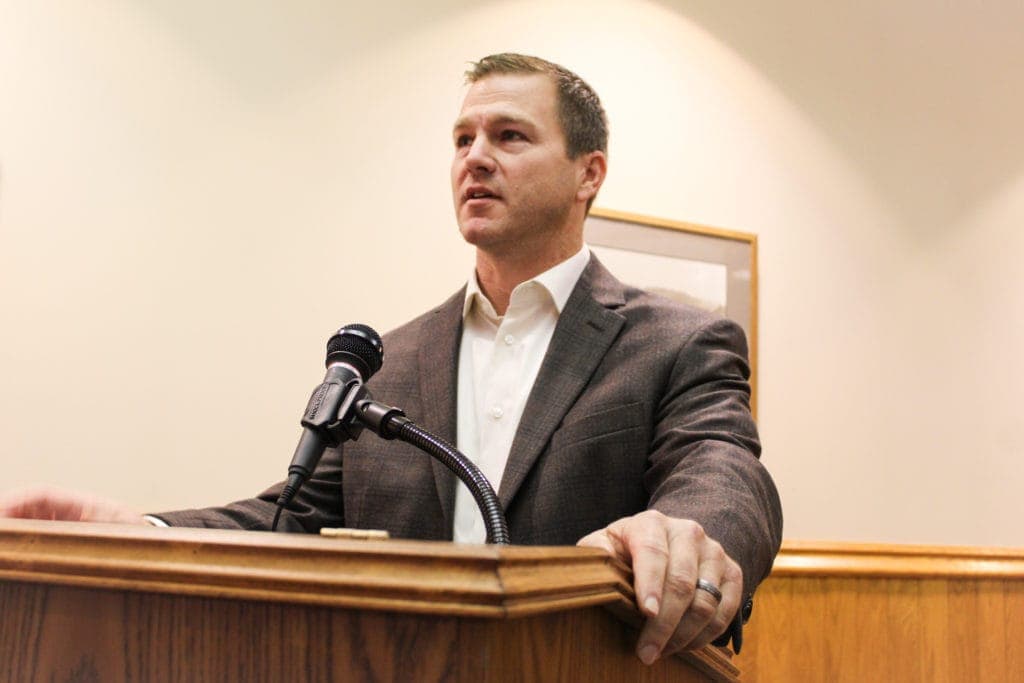BUCKHANNON – The Upshur County Commission received an update on the Atlantic Coast Pipeline construction at its meeting Thursday.
The Atlantic Coast Pipeline is a project involving the building of a 42-inch-wide natural gas pipeline that’s charted to run approximately 600 miles through West Virginia, Virginia and eastern North Carolina.
Construction on the pipeline has been on hold since Dominion Energy, the primary owner and operator of the pipeline, voluntarily suspended construction on the project in mid-December 2018 following a series of court rulings issued by the U.S. Court of Appeals for the Fourth Circuit.
The ruling invalidating several permits necessary to continue building the line, according to a previous story.

At Thursday’s meeting, ACP community liaison Mike Cozad, who’s been in Upshur County since the beginning of construction, introduced the new West Virginia Public Affairs Director, Jason Harshbarger, who discussed the project’s progress.
The two main things he said he would discuss were revoked, or vacated, permits that had been issued through the U.S. Fish and Wildlife Service and the U.S. Forest Service.
“We received a permit called a taking permit [through the USFWS], which is done through a biological study and an incidental take study,” Harshbarger said. “It was challenged, so it was taken up to the Fourth Circuit, and they vacated our permit.”
He said the court determined the U.S. Fish and Wildlife did not conduct enough studies and did not investigate enough because they ran into the Rusty Patched Bumblebee, which is classified as endangered under the federal Endangered Species Act.
“The U.S. Court Fourth Circuit vacated our permit, so this whole summer and over the year we’ve been working with contractors doing additional studies to identify the population of the Rusty Patched Bumblebee and other species that were brought up in this court case,” Harshbarger said. “We have our new permits back in front of U.S. Fish and Wildlife, so we’re very optimistic that by the end of this year, we’ll have a decision and new permits issued by the U.S. Fish and Wildlife.”
The second matter Harshbarger brought up was the Appalachian Trail.
“The U.S. Forest Service [initially] issued a permit for us to cross the Appalachian Trail with the pipeline,” Harshbarger said. “This was going to be done through a bore, which was about 650 feet below the trail. We’re not disturbing the trail at all.”
He said there are approximately 62 pipelines that run beneath the Appalachian Trail currently.
“The precedent has already been set with pipelines, but our permit was once again challenged and taken to the Fourth Circuit, in Richmond, Virginia, and they vacated our permit on that,” Harshbarger said. “We have made an appeal to the U.S. Supreme Court to hear our case, and we found out about a month ago, the U.S. Supreme Court will take our case up, most likely in the February timeframe on their docket and we’re looking at possibly having a ruling on that in June.”
He said they are optimistic the court will rule in their favor and if it does, they could be back to construction sometime next summer. If they begin again in summer 2020, Harshbarger said the estimated completion date would fall near the end of 2021.












